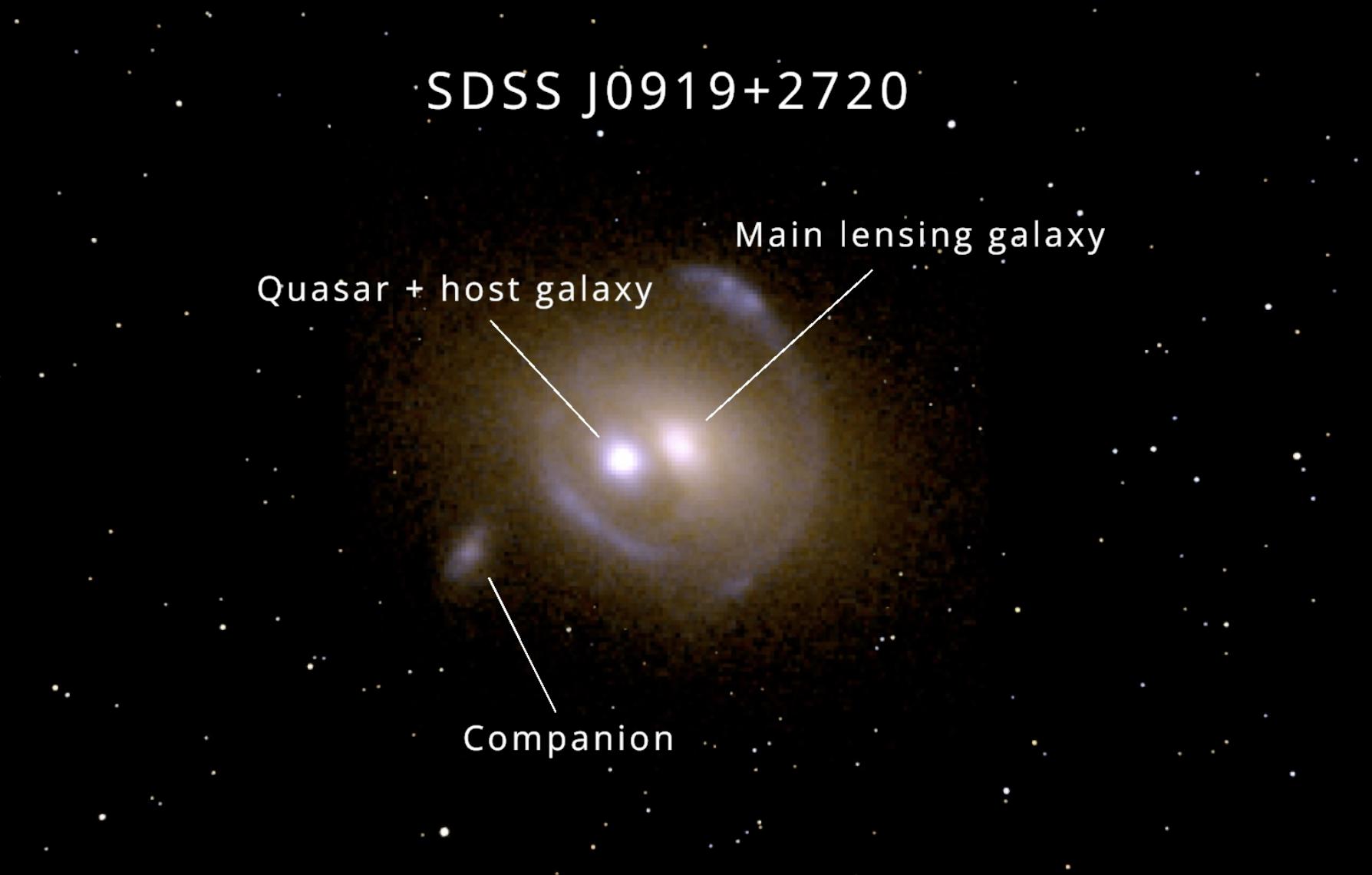
A team of researchers from EPFL have found a way to use the phenomenon of strong gravitational lensing to determine with precision – about 3 times more precise than any other technique – the mass of a galaxy containing a quasar, as well as their evolution in cosmic time. Knowing the mass of quasar host galaxies provides insight into the evolution of galaxies in the early universe, for building scenarios of galaxy formation and black hole development. The results are published in Nature Astronomy.
“The unprecedented precision and accuracy achieved with gravitational lensing provide a new avenue for obtaining robust mass estimates in the distant Universe, where conventional techniques lack precision and are susceptible to biases,” says EPFL astrophysicist...
Read More









Recent Comments